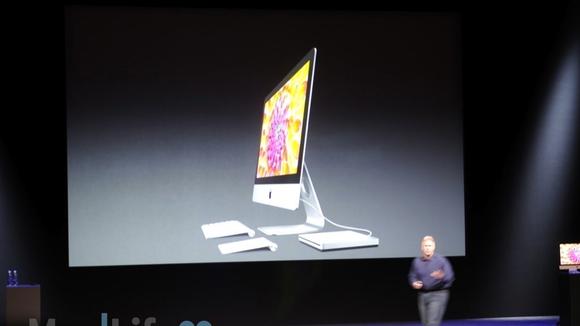Apple VP: Apple does what PC competitors are 'afraid' to do

Apple has become the world's most valuable company because, when it comes to making hard decisions that its PC competitors refuse to make, it puts the "hard" in hardware.
That's according to Apple's Senior Vice President of Worldwide Marketing, Phil Schiller, in a recent interview with Time magazine.
"Old technologies [like rotating discs] are holding us back," Schiller said. "They're anchors on where we want to go."
"Our competitors are afraid to remove them. We find the things that have outlived their useful purpose."
iTunes, not Blu-ray, is the future for Apple
Optical drives are a relic that Apple has left to PCs. This week, a redesigned iMac was unveiled and its all-in-one components didn't include an archaic disc tray.
"In general, it's a good idea to remove these rotating medias from our computers and other devices," Schiller said.
"They have inherent issues - they're mechanical and sometimes break, they use power and are large. We can create products that are smaller, lighter and consume less power."
Sign up for breaking news, reviews, opinion, top tech deals, and more.
This is in contrast to the PC market, which is filled with notebooks that offer Blu-ray drives for a "home theater on the go." Apple doesn't feel left out.
"Blu-ray has come with issues unrelated to the actual quality of the movie that make [it] a complex and not-great technology…So for a whole plethora of reasons, it makes a lot of sense to get rid of optical discs in desktops and notebooks."
In the eye of Apple, netbooks were not-books
Apple has a history of ditching components that rival PC makers see as essential hardware for another decade, starting with the floppy disk drive in the 90s.
However, the company hasn't dropped so much weight from its slimmed-down computers that they're barebones in quality or price like netbooks.
"There were these products being created called netbooks," Schiller recalled to Time.
"People said they were the future. We rejected them because we thought they were poor. Even if the market was going there, we weren't going to chase everybody downhill."
Instead, he told Time that the iPad has become Apple's answer to the $500 (UK£310, AUD$482) computer.
"And now 100 million people agree that the iPad is a great computer."
Apple seems to have the same stance when the company says it won't make a 7-inch tablet. Schiller thinks consumers will pay $329 (£269/AUD$369) for the 7.9-inch iPad mini instead.
Apple's products priced on value
Surprisingly, Schiller thinks that economic woes aren't a hindrance to sales - they actually make people want Apple's more expensive products.
"When the economy is difficult, people care a great deal about the things they spend their money on," he says.
"Customers have come to understand that Apple's products aren't priced high - they're priced on the value of what we build into them."
"We wouldn't make something cheap or low quality," said Schiller. "Our approach at Apple has always been to make products we're proud to own and use ourselves."
Via Apple Insider, Time
